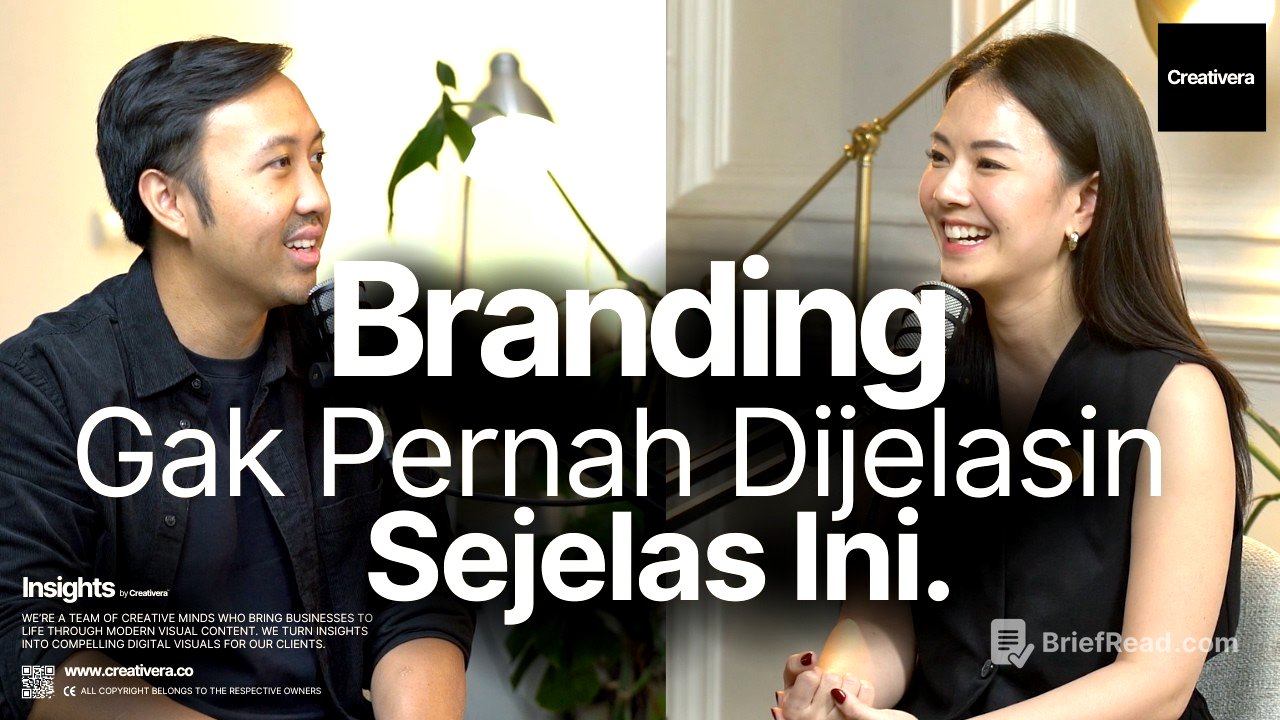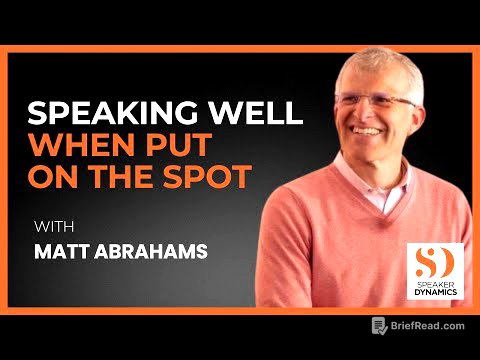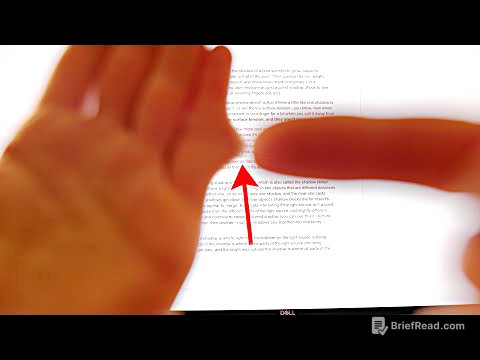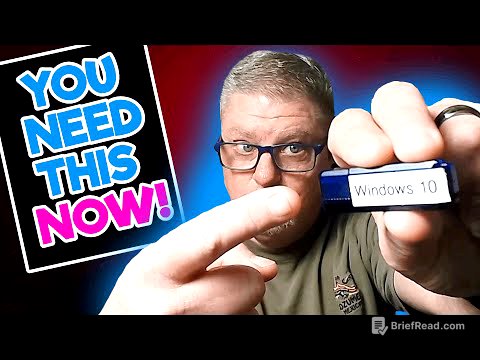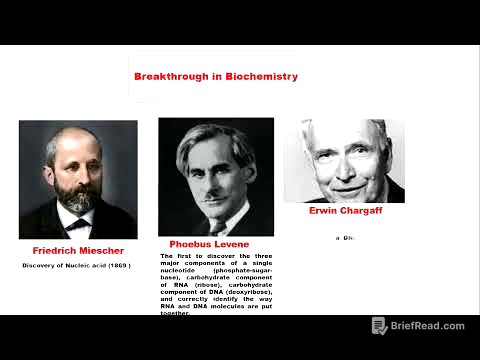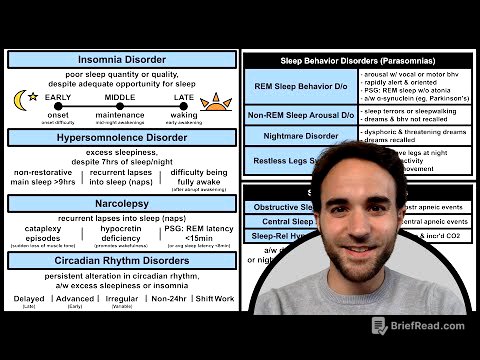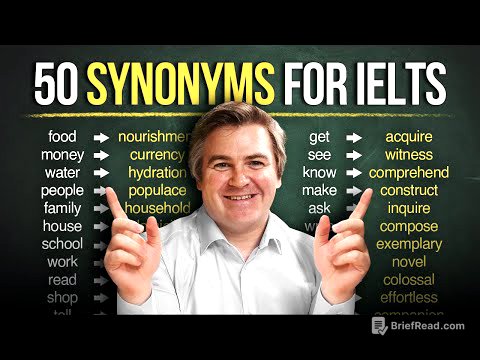TLDR;
This video features a conversation with Stefanie Regina (Hani), a brand consultant and agency owner at Haloka Group, discussing branding strategies and business insights for small and medium-sized businesses. The discussion covers topics such as transitioning from a professional career to entrepreneurship, the importance of product-market fit before branding, building a sustainable business, understanding consumer needs, and the role of personal branding. Hani shares her experiences and strategies in building Haloka, emphasizing the significance of internal culture, consumer research, and adapting to the evolving business landscape.
- Transitioning from professional to entrepreneur, focusing on long-term goals over immediate income.
- Prioritizing product-market fit before investing heavily in branding.
- Building a sustainable business by understanding and focusing on consumer needs.
- The importance of internal culture and values in maintaining brand consistency.
- Personal branding as a marketing tool, not a necessity for all founders.
Introduction [0:00]
Augi introduces Stefanie Regina (Hani) from Haloka Group, setting the stage for a discussion on branding 101, tailored for small and medium-sized businesses. The conversation aims to provide practical insights, drawing from Hani's experience in FMCG and her current role as a brand consultant and agency owner.
Hani's Background and Transition to Entrepreneurship [2:18]
Hani shares her background, explaining that she previously worked in FMCG as a brand manager and is now building Haloka Group, which includes Haloka Talk (media) and Haloka Creative (brand consultant and agency). She discusses the transition from a stable corporate job to the uncertainties of running a business, highlighting that the decision to start Haloka was a gradual process that began during the pandemic.
The Early Days of Haloka [3:30]
Hani explains that the idea for Haloka emerged during the pandemic when she started hosting webinars to connect with people. These webinars led to partnerships and sponsorships, eventually prompting her to consider Haloka as a full-time venture. The decision-making process involved calculating potential income, relying on emergency funds, and seeking her parents' blessing, taking about 1.5 years to transition fully.
First Steps After Resigning [6:55]
On her first day after resigning from her corporate job, Hani focused on legalizing Haloka as a PT (Perseroan Terbatas, which is an Indonesian term for Limited Liability Company), ensuring the business could serve companies and hire employees correctly. She advises new business owners to focus on proving their business is viable and can generate income. Initially, Haloka's services were centered around e-learning platforms and social media management, which later evolved into consultancy and branding strategies.
Hiring and Building a Team [9:55]
Hani discusses her approach to hiring, emphasizing the importance of finding individuals who are agile and align with Haloka's culture of making a positive impact. She mentions that interns often become full-time hires, and the hiring process can be lengthy, sometimes taking up to three months. The first hire was a PA (Personal Assistant) who helped with various tasks, and as the company grew, specialized roles were added based on the team's needs.
Characteristics of a Sustainable Business [16:24]
Hani shares her perspective on what makes a business sustainable, drawing from her experience with generational family businesses. She believes that a sustainable business understands and focuses on its consumers, prioritizing their needs over competition. Communication is key, and businesses must adapt their messaging to stay relevant to their audience.
Branding Foundations and Brand Purpose [24:39]
Hani explains that businesses often struggle to convey their brand message effectively. She introduces the concept of brand purpose, which should remain consistent over time, even as communication methods evolve. Haloka uses a "brand purpose canvas" to help businesses define their beliefs, vision, core competencies, and target audience, ultimately leading to a relevant hashtag.
Rebranding and Brand Building vs. Brand Activation [30:38]
Hani describes branding as having two stages: functional (name, logo, packaging) and emotional (focusing on consumer loyalty). She differentiates between brand building (long-term, like saving precious metals) and brand activation (faster returns, like buying shares). Both are necessary and should be allocated budget-wise, similar to managing personal finances.
Product Market Fit and Celebrity-Owned Brands [34:08]
Hani emphasizes that branding cannot save a bad product and that product-market fit is essential. She addresses the phenomenon of celebrity-owned brands, noting that while they may initially boost sales, they must still meet consumer needs and innovate to remain sustainable. Continuous improvement and adaptation are crucial for long-term success.
Outsourcing Branding and the 3C Framework [36:02]
Hani discusses the possibility of outsourcing the branding process, explaining that Haloka offers comprehensive services to shape a brand from concept to execution. She introduces the 3C framework (Company, Consumer, Competitors) as a foundation for building effective communication and positioning. The choice of communication channels depends on the product and target audience.
Personal Branding for Founders [39:06]
Hani shares her perspective on personal branding for founders, stating that it is a marketing tool that can be activated or not. While it can be beneficial, not everyone is comfortable with it. Successful personal branding aligns with what the person wants to convey and is subjective. The founder's values should be crystallized into the company culture, ensuring consistency even as the team evolves.
Strategies for Personal Branding and Overcoming Fear [50:49]
Hani explains her strategy for personal branding, focusing on sharing her journey as a founder and her values. She emphasizes that her content aims to help Haloka Group grow and that she prioritizes being a founder over being a content creator. To overcome the fear of being in front of the camera, she advises not to think too highly of oneself and to remember that the world does not revolve around you.
Managing Time and Fatigue [53:29]
Hani discusses how she manages her time and deals with fatigue, prioritizing Haloka Group and collaborating with others to break the routine. She emphasizes the importance of knowing what you like and dislike and finding people to help with tasks you find draining.
Scalability and Building an Ecosystem [1:01:24]
Hani addresses the challenge of scalability in service-based businesses, suggesting the creation of an ecosystem and intellectual property (IP) to generate revenue independently of client work. She encourages businesses to build their own brand and culture, which can serve as a foundation during challenging times.
When to Go All In [1:04:38]
Hani shares her thoughts on when to fully commit to a business, advising to "taste it first" and ensure there is a genuine demand for the product or service. She emphasizes the importance of considering the livelihoods of those who will depend on the business and testing the waters before making a full commitment.
Haloka's Future and Conclusion [1:08:31]
Looking ahead, Hani envisions Haloka being remembered as a company focused on consumer insights and brand thinking. She aims to strengthen internal muscles, build IPs, and foster communities. Augi thanks Hani for her insights, concluding the discussion.
